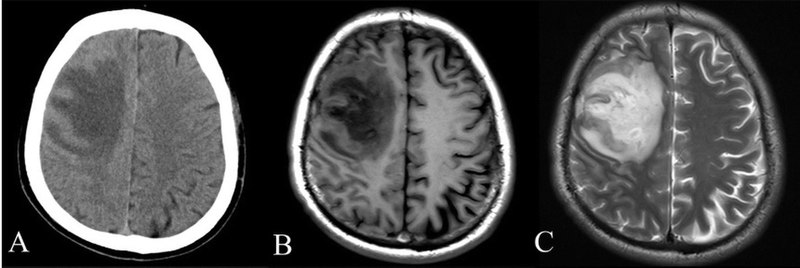What is the Difference Between a CT Scan and an MRI?

While both CT scans and MRIs have unique benefits, there are significant differences between them. Most notably, a CT scan detects changes and abnormalities in hard tissues. An MRI can provide additional detail about both hard and soft tissues. For this reason, radiologists, oncologists, and other healthcare professionals often order MRI scans when performing cancer screenings and diagnosing diseases.
What is a CT Scan?
A CT scan, or computed tomography scan, involves a large X-ray machine. Patients are typically asked to lie down during a CT scan while the X-ray machine takes cross-sectional pictures of the hard tissues inside their bodies. Doctors frequently order CT scans when they suspect that a patient has suffered from a specific type of injury. They’re useful in diagnosing and examining:
- Fractures
- Tumors
- Cancer monitoring and staging
- Internal bleeding
- Head trauma
- Evaluating post-surgical success
A CT scan can also help guide doctors through procedures, such as biopsies and surgeries. It is minimally invasive and can be performed quickly and easily.
What is an MRI?
An MRI is similar to a CT scan, however, it offers a more detailed look inside the body at various hard and soft tissues. The MRI machine uses magnets and radio waves to give doctors a full image of the tissues and structures inside your body. They’re especially helpful when diagnosing:
- Detecting certain cancers, such as prostate cancer or liver cancer.
- Soft tissue injuries
- Heart issues
- Torn ligaments
- Herniated disks
MRIs are also helpful in the diagnosis of early-stage breast cancer because they can detect tumors before they become larger.
Choosing Between an MRI and a CT Scan
Depending on your issues, your doctor may order either a CT scan or an MRI. In many cases, CT scans are ordered first to get a clear immediate picture of the hard tissues in the body, including tumors, etc. Then doctors order an MRI later if they see something on a CT scan that they’re unsure of.
However, MRI and CT scans should be considered complementary rather than the opposite. Many oncologists, radiologists, and medical professionals use both scans to make a complete diagnosis or to develop a more comprehensive treatment plan.
Both MRI and CT provide invaluable information that can be useful to your healthcare providers.
ImageCare Is Your One-Stop for Both MRI and CT Scans
At ImageCare, we want to be the only place you go for all your radiology and imaging needs. We offer several CT scan and MRI options at our centers, including:
- Stand-Up MRI
- Extremity MRI
- Neuro MRI
- Short Bore MRI
- Wide Bore MRI
- CT Urogram
- PET scan
- Conscious Sedation MRI
Schedule Your Imaging Today
At ImageCare Radiology, we offer a variety of diagnostic imaging services, including MRIs, CT Scans, and other neurological imaging. Our radiology and imaging centers believe in providing exceptional imaging services whenever you need us. If your doctor has requested any type of imaging service to help you diagnose your issues, give us a call today at 973-871-3333 to schedule an appointment or complete our convenient online appointment request form.